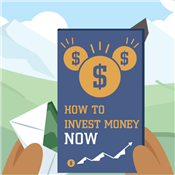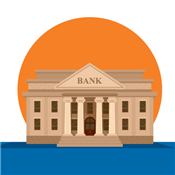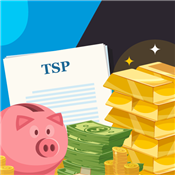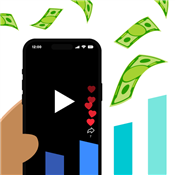Income-Generating Assets
Ad Disclosure: This article contains references to products from our partners. We may receive compensation if you apply or shop through links in our content. This compensation may impact how and where products appear on this site. You help support CreditDonkey by using our links.
Grow your income with smart investments. From real estate to alternative investments, here are the best income-generating assets, including examples for beginners.
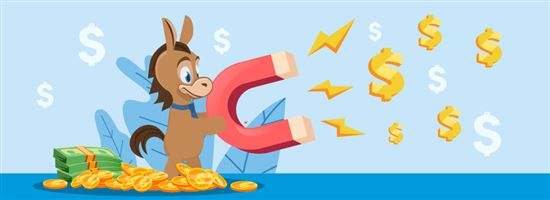 |
Is your spare cash just sitting in a bank account? Then it's not working hard enough for you.
You need your money to make more money. That's the secret of the wealthy.
Luckily today, there are lots of easy ways to invest in assets that can generate income, even if you only have $100. Better yet, some of the ideas below take only a few minutes to set up.
Invest in Real Estate with $10+
- Only $10 minimum investment
- Get a diversified portfolio of real estate projects across the US
- Open to all investors
Invest in Real Estate with $100
- Short-term real estate investments lasting just 6-18 months
- Open to non-accredited investors
- Low fees
What Are Income-Generating Assets?
Income-generating assets are investments that can provide a steady stream of income. Usually, this is passive income, meaning you don't need to actively work for it.
This is different from owning stocks or other assets that appreciate (like fine art or wine). Just because those go up in value doesn't mean you're getting income. You don't make any profit until you sell it.
An income-generating asset means that you can continuously get money from your investment, even without selling it.
If you have several assets that can make money, that can provide multiple streams of income. It can help you with cash flow and even can lead to early retirement!
Best Income-Generating Assets
 |
Read on for some of the best income-producing investment ideas.
Each one has its pros and cons. Smart investors have a mix to diversify and spread out risk. Think about what makes the most sense for your current situation right now.
1. Real Estate Investing Platform
Online real estate investing platform makes it possible for anyone to invest in real estate with just a little bit of money.
Even better, you can invest in real estate without actually owning property and all the headaches that go with it (e.g., dealing with tenants, managing, repairs).
Fundrise is one of the best real estate investing platforms for all types of investors. The platform will automatically invest your money in a portfolio of different properties. You only need $10 to start.
Dividends are paid quarterly. Plus, you'll get returns when properties appreciate in value and are sold off. In 2021, Fundrise averaged 22.99% annual return.[1]
The downside is that these types of investments are at least 5 years. So make sure you're okay with your principal tied up for that long.
Fundrise
- Minimum Deposit: $10
- Accredited Investor Requirements: None
- Annual Fee: 1% management fee
- Investment Types: Commercial, single family, multi-family, industrial
Pros:
| Cons:
|
2. Real Estate Fix-and-Flip Loans
Don't want your funds tied up for so long? Consider short-term real estate loans instead.
Groundfloor is a real estate investing and lending platform that offers fractional short-term real estate debt investments. You invest in loans to borrowers who need funding for flix-and-flip housing projects. You earn monthly interest payments as the borrowers pay back the loan.
The terms are typically just 6 to 18 months. Interest rates range from 5% - 15% depending on risk level. The average annualized net return has been 10+% on Groundfloor.
GROUNDFLOOR
- Minimum Deposit: $100
- Accredited Investor Requirements: None
- Annual Fee: 0.5-1.0% management fee with Flywheel Portfolio
- Investment Types: Short-term real estate loans
Pros:
| Cons:
|
3. Physical Real Estate
If you have the capital, buying an investment property is one of the best ways to generate monthly income. As long as you have renters, you'll earn money.
Roofstock is an online marketplace that lets you buy houses already with tenants. The idea is that you can start earning rental income right away.
The company does all the due diligence for you, - you simply pick which property you want. The platform can also connect you to property management services, so you can be hands-off. Everything can be done right on your laptop.
However, you do need enough money upfront to buy a house. You'll actually own the house and be responsible for it.
Even if you don't have enough to purchase an investment property, the house you live in now is a valuable asset. You can rent out a spare bedroom to a tenant or even as storage space.
4. Dividend Stocks
Regular stocks don't generate profit until they're sold, but dividend stocks can be a great source of income.
Dividends are when a company shares its profits with its shareholders on a regular basis. Usually, large blue-chip companies pay dividends (like Exxon Mobile and AT&T), since they're more established.
This is a cash reward separate from the stock's value. You're paid as long as you own the stock.
If you have enough invested in dividend stocks, you can earn a healthy amount of income over time. With the right planning, it's possible to even live off dividends - or at least heavily supplement your income.
J.P. Morgan Self-Directed Investing - Get Up to $700
- Get up to $700 when you open and fund a J.P. Morgan Self-Directed Investing account with qualifying new money.
- $700 when you fund with $250,000 or more
- $325 when you fund with $100,000-$249,999
- $150 when you fund with $25,000-$99,999
- $50 when you fund with $5,000-$24,999
- Get unlimited commission-free online stock, ETF, fixed income, and options trades when you open an account.
- $0 Online Commission trades
- Choose an account that's right for you: General Investing, Traditional IRA or Roth IRA.
- Access our secure, easy-to-use trading experience online or through the Chase Mobile® app.
- Our powerful tools and resources are built to help you take control of your investments.
INVESTMENT AND INSURANCE PRODUCTS ARE:
Deposit and Get 30 Free Stocks plus 8.1% APY on uninvested cash
Enroll in Cash Sweep to enjoy 4.1% APY base rate plus 4.0% APY booster for the first 3 months after opening your account
Make a net deposit of $2,000 or more to receive 30 draws, each for a free stock worth $2 - $2,000 each. Maintain average assets totaling $2,000 or more for 60 days to unlock the free stocks.
This offer is available to new and existing customers who have not opened a brokerage account before January 15, 2025, 04:00 ET, or who have opened a brokerage account but have not made a deposit or an ACATS transfer yet and plan to make the first deposit or ACATS transfer that settles before March 31, 2025, 23:59 PM ET. Terms and conditions apply.
5. Alternative Investments
Alternative investments are those in any asset classes other than stocks, bonds, or cash. It's smart to have these types of investments because they're not correlated with the stock market.
Traditionally, these types of investments were only open to hedge funds and other professionals. But YieldStreet allows everyday investors access to alternative assets starting with just $10,000.
It offers alternative investments in:[2]
- Art financing
- Legal financing
- Real estate
- Venture Capital
- Private Equity
- Private Credit
- Short Term Notes
- Structured Notes
- Diversified Funds
- Transportation
All YieldStreet offerings are debt investments backed by collateral. This offers some degree of safety in case the loan defaults.
YieldStreet Alternative Income Fund is a good place for any investor to start. This is a professionally managed diversified portfolio of many different alternative assets. You can earn passive income through quarterly dividends. It currently has an 8.1% annualized distribution rate.
Yieldstreet Prism Fund
Build a fixed-income portfolio spread across multiple asset classes with a single investment.
6. Peer-to-Peer Lending
Peer-to-peer (P2P) lending is when you lend money to other individuals who don't want to borrow through a traditional bank loan.
You'll earn passive income as people pay back the loan with interest. Depending on which loans you invest in, you can earn 4% - 10% annual returns.
There is also risk that a borrower won't pay back the loan. You can lower the risk by spreading your investment across multiple loans in case some borrowers default.
7. Farmland
Think about it … land is a finite resource. This is why farmland is a valuable asset. There will always be demand for land on which our food is grown.
Over the past two decades, farmland has delivered average returns of around 12.75%.[3] This is even a little higher than stocks, and with much less volatility.
AcreTrader is a platform that lets you invest in shares of different farms. You earn income from annual cash yield from selling crops (usually in the 2%-5% range). And when the farm is eventually sold, you'll earn higher returns from land appreciation.
The downside is that farmland investing is usually only open to accredited investors. The minimum investment also tends to be at least $10,000 - $30,000.
8. Small Business Investing
Always wanted to be a business owner but don't want the work that goes into it? Maybe investing in someone else's business is more appealing.
StartEngine is a popular equity crowdfunding platform for startups. This means you will own a piece of the company. You earn returns when the company is acquired or goes public.
StartEngine is open to everyone - both accredited and non-accredited investors.
Note that investing in businesses carries more risk because startups are more likely to fail. But the potential returns can be higher too.
9. Art Crowdfunding
Yes, you can even invest in art and make a healthy return.
Masterworks lets everyday investors invest in classic blue-chip artwork (from famous artists like Banksy and Kaws). The minimum is usually $15,000.[4] You'll own a tiny share of a famous painting.
When the painting is sold off, profits are distributed to the investors. Since 2019, Masterworks has exited 23 paintings with up to 77.3% net returns.[5]
But note that until the art piece sells, you won't see any returns in the form of income. It's a long-term investment.
Masterworks: Earn Passive Income with Art
10. Annuities
Annuities are long-term investment contracts sold by insurance companies. You make a payment to the company (in either a single lump sum or premiums). In return, the company invests your money and pays you back in regular payments at a future date.
People mostly use this as a retirement planning solution. The main purpose is to have a guaranteed stream of income during retirement.
Annuities are tax-deferred and there's no contribution limit. So it's another way to save for retirement if you've already maxed out your 401(k) and IRAs.
11. High Yield Savings
A high yield savings account is a risk-free way to grow your money. However, savings rates are low nowadays, so you won't generate too much income.
Online banks offer higher interest rates than traditional banks. But don't expect it to make you rich. Even if you have $10,000, at 0.5% APY, that's only $50 per year.
The main advantage of a high yield savings account is that your money is liquid. You can easily withdraw your funds when you need it for an emergency or large purchase. Many other investments (like real estate) don't allow you to withdraw your money at any time.
CIT Bank Platinum Savings - $300 Bonus
- Transfer a one-time deposit of $50,000+ for a Bonus of $300
- 4.30% APY with a balance of $5,000 or more
- 0.25% APY with a balance of less than $5,000
- No monthly maintenance fee
- Member FDIC
Discover® Online Savings - $200 Cash Bonus
To qualify for Bonus: Apply for your first Discover Online Savings Account, enter Offer Code CY924 at application, deposit into your Account a total of at least $15,000 to earn a $150 Bonus or deposit a total of at least $25,000 to earn a $200 Bonus. Qualifying deposit(s) may consist of multiple deposits and must post to Account within 45 days of account open date. Maximum bonus eligibility is $200.
What to know: Offer not valid for existing or prior Discover savings customers, including co-branded, or affinity accounts. Eligibility is based on primary account owner. Account must be open when bonus is credited. Bonus will be credited to the account within 60 days of the account qualifying for the bonus. Bonus is subject to tax reporting. Offer ends 03/13/2025, 11:59 PM ET. Offer may be modified or withdrawn without notice. Due to new customer funding limits, you may wish to initiate fund transfers at your other institution. For information on funding your Account, see FAQs on Discover.com/Bank. See advertiser website for full details.
12. Certificates of Deposit
A certificate of deposit is another type of bank savings account. You deposit a fixed amount of money for a fixed amount of time. You're guaranteed a fixed APY over the entire term.
Typically, you'll get a higher interest rate in return for a longer commitment. The APY is usually higher than a regular savings account, but still may not beat inflation.
The downside to CDs is that your funds are tied up for the entire term. Withdrawing early will have a penalty. This makes CDs good for short-term financial goals where you don't want to accidentally spend the money.
CD Rates - Up to 4.25% APY
- $500 minimum opening deposit
- FDIC insured
| Term | CD Rates |
|---|---|
| 6 Month | 4.25% APY |
| 12 Month | 4.00% APY |
| 24 Month | 3.35% APY |
| 36 Month | 3.25% APY |
| 60 Month | 3.00% APY |
13. Creating Digital Assets
Usually, income-producing assets require you to invest money in order to make money. If you don't have the capital but you've got a creative mind, why not make your own asset?
Making a digital asset does require a time investment. But it can turn into an excellent passive income stream. Some ideas include:
- An e-book
- Web design templates
- YouTube videos
- Printable art / illustrations
- Fonts
- Online course
- Music / audio recordings
The good thing about digital assets is that you only make it once, but people can buy it over and over. The income potential is unlimited.
And you don't need to run to the post office to ship, making it a side hustle with a very minimal time commitment.
14. Starting Your Own Business
And finally, starting your own business is a big investment that could potentially have the best payoff. Not only do you get to be your own boss, but there's also no cap to your income.
However, this also requires the most effort. You must be ready to take risks, put in hard work, learn new skills, and give up free time.
If starting a full-blown business sounds too intimidating, you can always start with a small side hustle first. For example, if you enjoy graphic design, you can take on some projects on the side.
As you build a client base, you can expand that into your own business and hire designers to work for you.
Can You Invest with Little Money?
You don't need a lot of money to start investing. There are lots of things you can invest in even if you only have a little bit of money.
Here are some income-generating investments for $100 or less:
- Become a real estate owner on Fundrise with only $10.
- Buy dividend stocks on Robinhood starting with only $1.
But remember that the more you invest, the greater your returns will be. You won't make too much money with small investments. That said, any amount invested is better than none at all.
Make investing small amounts a regular habit. Eventually, even $20 at a time will turn into a nice nest egg.
What Are the Best Assets to Invest In?
The best investments for you will depend on your risk tolerance, goals, and current financial situation. It's smart to have a mix of different assets to diversify risk.
For example, investing in stocks is important to any wealth-building plan. But they're also more volatile. Usually, stocks are best if you can hold them long-term, so you ride out the ups and downs of the market.
To counter that, it's smart to also have investments that don't correlate to the stock market, like real estate, art, and other alternative assets.
If you need the money in the next couple of years, then look to risk-free investments like savings accounts and CDs. However, the trade-off is that your returns will be very low.
Bottom Line
Income-generating assets are a great way to help with cash flow and reach financial freedom. They allow you to earn money even without actively working.
Luckily, a lot of investing platforms now let you invest with just a little bit of money. No matter where you are in life or how much you have, you can start investing in assets that make money.
Plus, as you earn income, you'll have more money to put back into the investments. That's when you'll start building real wealth.
References
- ^ Fundrise. How Fundrise compares to public REITs, Retrieved 08/10/2024
- ^ Yieldstreet. Asset Classes, Retrieved 08/10/2024
- ^ AcreTrader. Farmland Returns in the United States, Retrieved 08/10/2024
- ^ Masterworks. Is there a minimum investment for Masterworks?, Retrieved 08/10/2024
- ^ Masterworks. 23 Exits, $60M+ Distributed Back So Far, Retrieved 08/10/2024
Write to Anna G at feedback@creditdonkey.com. Follow us on Twitter and Facebook for our latest posts.
Note: This website is made possible through financial relationships with some of the products and services mentioned on this site. We may receive compensation if you shop through links in our content. You do not have to use our links, but you help support CreditDonkey if you do.
Fundrise, LLC ("Fundrise") compensates CreditDonkey Inc for new leads. CreditDonkey Inc is not an investment client of Fundrise.
|
|
| ||||||
|
|
|














